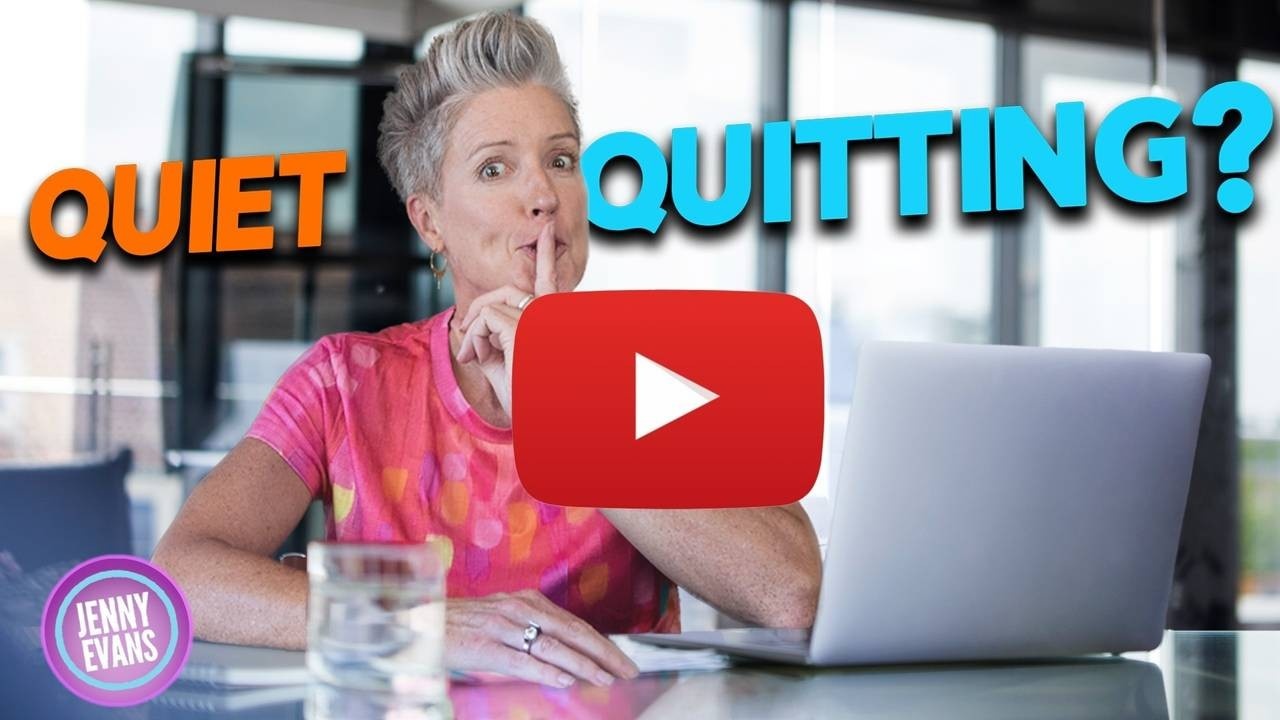
What is Quiet Quitting? And is this You or Someone on Your Team?
Aug 29, 2022I go on a bit of a rant on what Quiet Quitting is REALLY about.
Watch to see what's causing it and get some tactical strategies for both employees and leaders to address it.
✴️ Subscribe for more tips to boost your resilience.
What is Quiet Quitting Really?
(I go on a bit of a rant here, so bear with me….)
You may have recently seen in the headlines this idea about Quiet Quitting where people decide they're no longer going to go above and beyond in their jobs, and they're not really going to buy into hustle culture anymore.
So, of course, I’m really fired up. That’s not quitting. That's still doing your job. But I think this desire for quiet quitting really is a function of burnout. Let me explain.
During the pandemic, a lot of us were working from home. Boundaries became totally blurred. There was less distinction between your work life and your home life. Everybody stepped up to the plate during the pandemic and worked their butts off. And the pandemic was also an opportunity for a lot of us to ask ourselves, “What's really important? What am I doing with my life?”
And so the pendulum during the pandemic swung to everybody working really hard and really long hours. And it's not sustainable, and the pendulum is now swinging back again. A lot of my coaching clients, who are very high leaders, come to me because they don't know what else to do. They can't sustain what they've currently been doing. They're stressed, they're burned out, they're unhappy, and they want to quit. These are not employees. These are leaders.
People are wanting and needing boundaries. And this is actually a good thing because when we get recovery, we are more resilient, we are more engaged, we are more productive, we are happier.
We are better employees and leaders and humans.
So right now is a great opportunity for us to be having conversations. Communication is key both for employees as well as leaders and managers.
Alright, employees: one of the fastest ways to burn out is start doing things that disrespect what matters most to you in your life. And setting boundaries requires that you actually know and are clear on what matters most in your life. (And I do have a course coming up to help you do just this. Stay tuned.) But once you're very clear on what's really important to you, what matters most to you, now is the time for a conversation for you to have with your leader or manager, so there is an understanding between the two of you in defining your responsibilities. What exactly are the priorities? Because if you stop doing something that's important, you are going to look like a slacker.
Leaders: you have to be having regular conversations with your people and not just “how are you doing?” I'm talking about how are you doing REALLY? It's critical that you build relationships with your people to better understand what they're going through, what they need, and for you to understand how you can support them so you're not blindsided by something later on. You should be having one-on-ones with your direct report(s) a minimum of every quarter. You also need to be encouraging and reminding your people to take breaks, to take their vacation time, and to also role-model the behavior of boundaries. Be very thoughtful about when you're sending emails. If it's outside of work hours and it's not something urgent, it can wait.
Human Resources: you all should be doing in-depth onboarding and exit interviews so that you can really understand what motivates people. Why do they want to be working at your organization? And also, what is making people leave your organization? And then take that information and actually make some changes.
So this idea of Quiet Quitting, it's not people quitting. It's people still wanting to do their jobs but have time outside of work to recover, to connect and engage with people and things that are important to them, so that when they do come back to work, they are focused, they are productive and ready to go.
It's not Quiet Quitting. It's boundaries and burnout.
Okay, rant over. 😊 Thanks for listening.
10 Micro Strategies to Boost Your Energy & Resilience
Instead of reaching for that candy bar or cup of coffee, here are 10 QUICK & EASY WAYS you can increase your energy and resilience by changing your chemistry and physiology.
Just let me know where you want me to send them.
We hate SPAM. We will never sell your information, for any reason.

